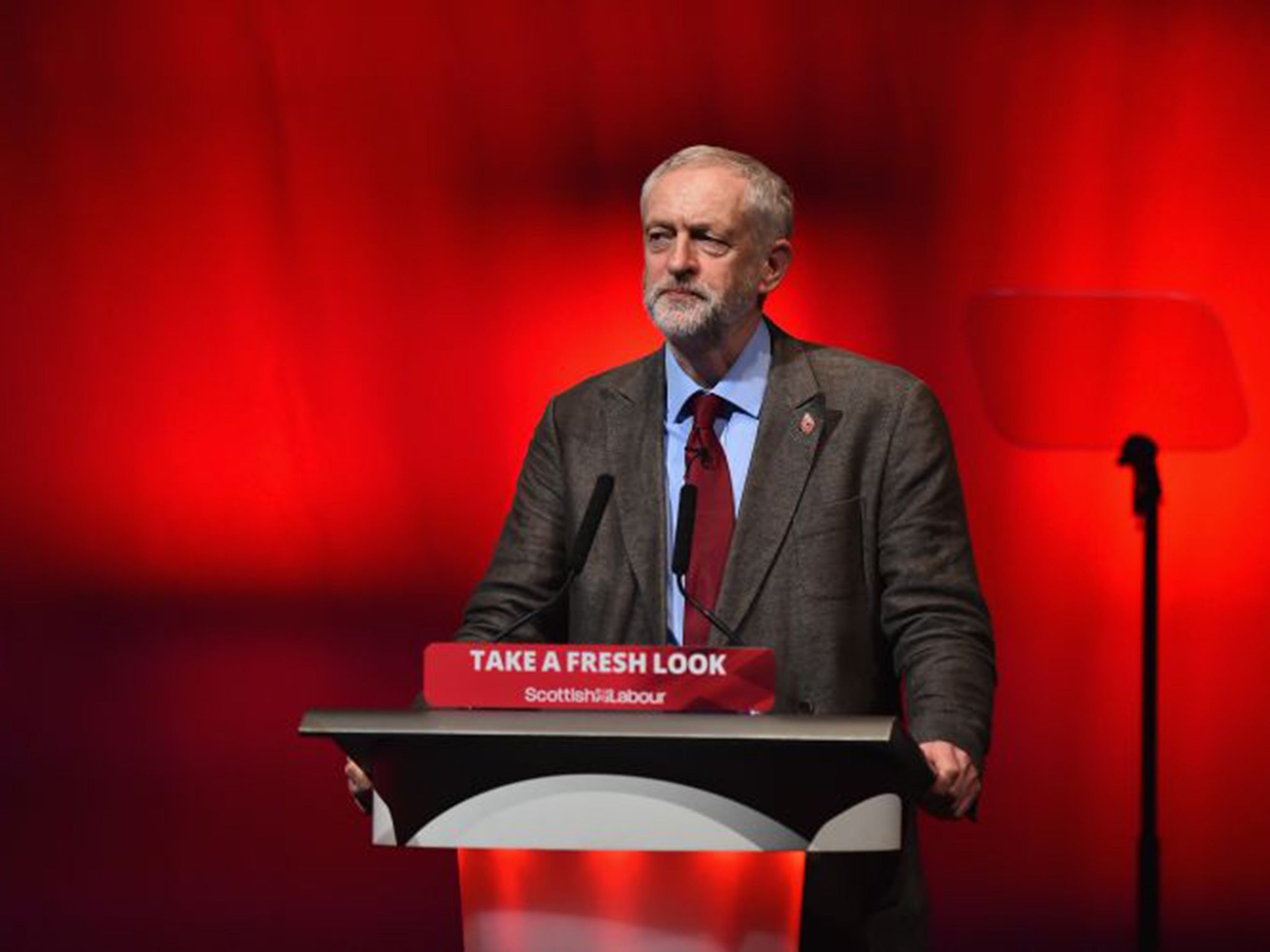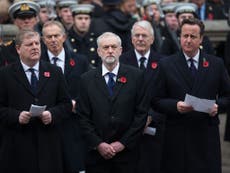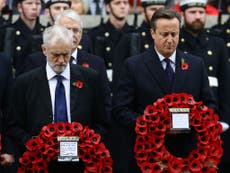Corbyn is right about Trident – and his team should realise that
Even if it were true that nuclear weapons could help to defend the realm, it is beyond our means – we will be paying some £100bn over 40 years for something that is really controlled by the US


There is something vaguely comical, or leastways tragicomical, about the whole national debate on Britain’s role as a nuclear power – made more poignant by so much of it being conducted at this time of remembrance.
Yesterday I watched Maria Eagle, the shadow Defence Secretary, and a study in defiant moderation, explain to Andrew Marr on the BBC that, no, she didn’t agree with her leader about the philosophy of nuclear deterrence, and she’d try to persuade him to her point of view.
I knew Maria a little at university and she will make her case eloquently and well, but I doubt she will succeed where so many have failed to move Corbyn. What’s more, she took the opportunity to agree with the Chief of the Defence Staff, General Sir Nicholas Houghton, when he said that Jeremy Corbyn’s statement that he would never use nuclear weapons rendered the British deterrent useless and a gigantic waste of money. (This brought a furious reply from Corbyn, accusing the general of breaching the constitutional principle of political neutrality from the armed forces.)
Sir Nick, by the way, thinks Corbyn will change his mind because “power is a sobering thing”. I don’t think he needs to worry about Corbyn experiencing that. We also know, thanks to an exclusive in The Independent on Sunday, that Eagle hasn’t even met her leader to discuss this policy.
And so we have that favourite media story – a Labour split on defence, though for most of the party’s life that has been its default (it had its first big row over the Great War, you know). The arguments are familiar, as they have been since nukes were first used, and best summed up by Labour’s postwar foreign secretary Ernest Bevin who demanded that Britain should have its own nuclear bomb “with a dirty big Union Jack on top of it”.
I do not understand any of this. We talk as if we were still a world force, or had some right to be, and as if Trident will deliver us peace and power because our “enemies” will fear us all the more. Maybe it will, although there is scant evidence of it.
The nation has just remembered and honoured those who fell in two world wars, but also in all those conflicts in the nuclear age – Northern Ireland, the Falklands, Sierra Leone, Bosnia, Afghanistan, Iraq and elsewhere. At no point were nuclear weapons of any use. Nor did they win the Cold War. It was the Americans who did that for us, just as they did for non-nuclear powers such as Germany or Italy. The Russians, despite Mikhail Gorbachev’s warm working relationship with Margaret Thatcher, regarded the British, like the French, as nuclear footnotes at best. Neither the Kremlin, the IRA, Saddam Hussein, nor the Taliban have been that bothered about Trident or those magnificent Vulcan bombers we see at air shows.
Even if it were true that nuclear weapons could help to defend the realm – because the future is uncertain and new threats can always emerge – the truth we cannot face up to as a nation is that it is beyond our means. We will be paying some £100bn over 40 years for something that is really controlled by the United States. Mad.
Imagine if Portugal, our oldest ally, declared that it wanted to punch above its weight again, as if it had a big overseas empire, and be taken seriously by Barack Obama and Vladimir Putin, and was going to plunge further into debt and denude its people of food and public services to do so? Actually, that is more or less what the North Koreans do, with their pantheon of imaginary invaders, and we mock them for it. Why is little Britain so very different? We’ve been unable to afford properly independent nuclear weapons since the early 1960s, when a combination of cost and technical failure meant that Britain had to abandon its truly independent nuclear weapon, and was forced to rent some gear from the Americans, who might or might not let us use it “independently”.
This pursuit of national prestige will be ruinously expensive. We would be better off spending the cash on improving our infrastructure, our schools and our health service. That way, we might one day become wealthy enough to be able to afford our very own missiles. Until then, we should leave our imperial dreams, Elgar’s “Nimrod” and “Rule Britannia” to the sombre ceremonials on Remembrance Day.



Join our commenting forum
Join thought-provoking conversations, follow other Independent readers and see their replies